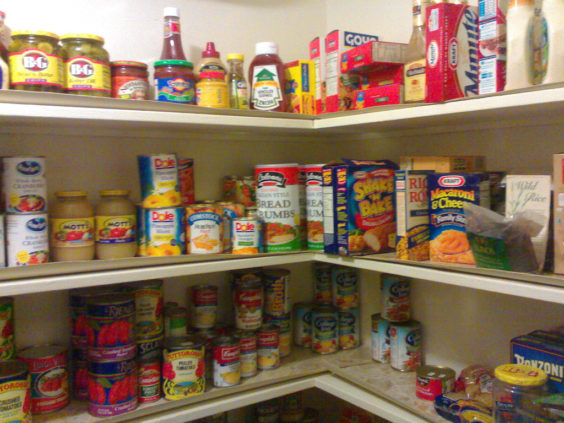Is your stockpile so large, that things expire before you have a chance to use them? Well, a couple of federal lawmakers want to make sure that doesn’t happen, by making sure that your stuff doesn’t expire so soon – or at all.
Democratic U.S. Senator Richard Blumenthal of Connecticut and Democratic Congresswoman Chellie Pingree of Maine have introduced legislation to simplify and streamline food date labeling. Their hope is to give your seemingly “expired” food a whole new lease on life – and prevent you from tossing it before its time.
“Items at the grocery store are stamped with a jumble of arbitrary food date labels that are not based on safety or science,” Blumenthal said in a statement. “One of the most common arguments people seem to have at home is about whether or not food should be thrown out just because the date on the label has passed,” added Pingree. “It’s time to settle that argument, end the confusion and stop throwing away perfectly good food.”
The two take issue with the unregulated “dizzying array of date labels”, such as “best by,” “use by,” and “expires on”. The Harvard Food Law and Policy Clinic, which has long advocated for standardized labeling, recently conducted a survey to determine whether consumers can distinguish what each phrase actually means. What they found was widespread confusion about the meanings of various labels. Is “use by” a suggestion or a warning? Is it safe to eat something past its “sell by” date?
So the legislators’ bill would establish a uniform national system that clearly distinguishes when a product is no longer at its peak quality, and when it’s potentially unsafe to eat. They’re proposing unambiguous phrasing like “best if used by” when it comes to quality, and “discard by” when it pertains to food safety.
So what do food companies think about all this? In the past, Blumenthal said, they might have opposed the idea, believing that confusion about expiration dates would cause consumers to buy more food, more frequently. But growing concern about food waste has led major manufacturers like Campbell’s and Nestle to support the bill.
“Standardizing date labeling is a practical and commonsense approach to giving consumers the information they need,” said Paul Grimwood, the CEO of Nestle USA. And as a happy side effect, added Campbell’s Chief Food Law Counsel Steve Armstrong, the bill “would make it easier for companies to donate products to organizations such as food banks, which could help cut down on food waste while helping those in need.”
But wait – are businesses really clamoring for more government regulations? Isn’t mandated date labeling a case of government overreach, when all you really need to do is apply the “smell test”?
One recent proposal suggests going the other way – helping to ease confusion about date labeling, by doing away with many date labels altogether. In Europe, most packaged foods must have a date label, even if they never really expire. So the European Union is considering exempting certain nonperishable foods from the mandate. “We think citizens can make sure themselves if, for instance, rice is still usable,” Dutch agriculture minister Sharon Dijksma said when the idea was proposed a couple of years ago.
In the meantime, you can take matters into your own hands and visit a site like EatByDate.com. It aims to answer the question, “how long does food really last?” And the answers may surprise you. Many food products are perfectly safe to use weeks, months or even years past their printed expiration date. The website says an unopened jar of salsa, for example, is fine to eat up to two months after the date on the label. An unopened jar of instant coffee can last as long as 20 years. And baking products such as salt, sugar and flour, along with a variety of products like dried fruit and beans, syrup, unpopped popcorn and boxed Jell-O mix, will last virtually forever – no matter what the date on the package says.
And yet the Harvard survey found that more than a third of consumers always throw away food that’s near or past the date on the label, and 84% do so at least occasionally. That leads to a lot of good food being trashed – and good money being wasted. And that kind of negates all the time, effort and money it takes to fill your pantry.
So if you have packages of instant coffee, popcorn and Jell-O in your stockpile, don’t fret about having to use them anytime soon. Chances are, they’ll last longer than you will.
















